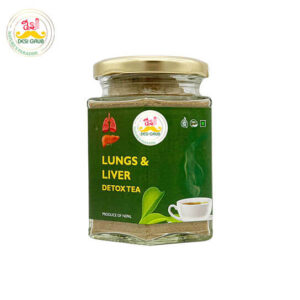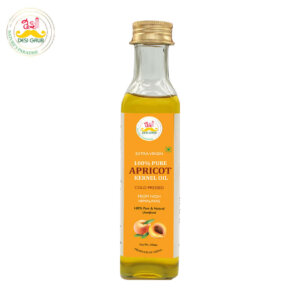Unlock the myriad health benefits of Desi Grub Black Seed Oil, a remarkable elixir derived from the seeds of Nigella sativa. Revered for centuries in traditional medicine, this oil is packed with powerful nutrients and therapeutic properties that support overall well-being.
Rich Nutritional Profile
Black Seed Oil is a potent source of essential fatty acids, including Linoleic Acid (omega-6) and Oleic Acid (Omega-9), which are crucial for maintaining heart health, reducing inflammation, and supporting brain function. It also contains thymoquinone, a powerful antioxidant and anti-inflammatory compound.
These components are said to be
- Anti-inflammatory, anti-viral, anti-bacterial, anti-fungal, antioxidant, anti-asthmatic, and anti-cancer
- Enhancing immune function to combat infections
- Reducing bloating, gas, constipation, and ulcers
- Alleviating respiratory conditions
- Regulating blood sugar levels
- Regulating high blood pressure and high cholesterol
- Aiding in weight loss
- Improving acne, eczema, psoriasis, and overall skin health
- Promoting hair growth and reducing dandruff
- Relieving menstrual cycles
Black Seed Oil can be used in various ways:
- Orally: Take 2.5 ml (about half teaspoon) twice a day for 8 weeks.
- Topically: Apply the oil to the affected area (skin conditions) for two months.
- Nasal Application: Put 2-3 drops in each nostril every day for 2 to 4 weeks, it is believed to help with sinus issues and allergies.
Each method offers unique benefits, so choose the one that best suits your needs.
Possibly effective for:
- Acne: Applying black seed oil to the skin might help improve acne.
- Hay fever: Taking black seed oil by mouth daily might improve allergy symptoms in people with hay fever.
- Asthma: Taking black seed by nose can improve coughing, wheezing, and lung function in some people with asthma.
- Chronic obstructive pulmonary disease (COPD): Taking black seed oil by mouth helps to improve lung function in people with COPD who are also using prescribed inhalers.
- Diabetes: Taking black seed oil by mouth daily seems to improve blood sugar levels in people with diabetes.
- Helicobacter pylori infection: Taking black seed along with standard therapies might help to get rid of this digestive tract infection that can lead to ulcers.
- High blood pressure: Taking black seed oil by mouth might reduce blood pressure by a small amount in healthy adults. However, it’s not clear if it helps people with high blood pressure.
- Male infertility: Taking black seed oil by mouth increases sperm count and motility. It’s not clear if it improves pregnancy rates.
- Breast pain (mastalgia): Applying black seed oil to the breasts during the menstrual cycle seems to reduce pain.
People commonly use black seed for asthma, hay fever, diabetes, high blood pressure, eczema, weight loss, menstrual cramps, and many other conditions, but there is no good scientific evidence to support these uses, including for COVID-19. Always consult with a healthcare professional before starting any new supplement.
Side Effects
- When taken by mouth: It may cause allergic rashes in some people and may also cause stomach upset, vomiting, or constipation.
- When applied to the skin: Black seed oil is possibly safe when used short-term. It can cause allergic rashes in some people.
Special Precautions and Warnings
- Children: It is possibly safe for children when taken by mouth short-term and in recommended amounts based on weight.
- Bleeding disorders: Black seed might slow blood clotting and increase the risk of bleeding. It might worsen bleeding disorders.
- Surgery: Black seed might slow blood clotting, reduce blood sugar, and increase sleepiness in some people. This can interfere with drugs used during and after surgical procedures and cause severe side effects. Stop using black seed at least two weeks before a scheduled surgery.
Moderate Interaction: Be cautious with this combination
- Medications for diabetes (Antidiabetic drugs) interact with Black Seed: Black seed might lower blood sugar levels. Taking black seed along with diabetes medications might cause blood sugar to drop too low. Monitor your blood sugar closely.
- Medications that decrease the immune system (Immunosuppressants) interact with Black Seed: Black seed can increase the activity of the immune system. Some medications, such as those used after a transplant, decrease the activity of the immune system. Taking black seed along with these medications might decrease the effects of these medications.
- Medications that slow blood clotting (Anticoagulant / Antiplatelet drugs) interact with Black Seed: Black seed might slow blood clotting. Taking black seed along with medications that also slow blood clotting might increase the risk of bruising and bleeding.
- Medications for high blood pressure (Antihypertensive drugs) interact with Black Seed: Black seed might lower blood pressure. Taking black seed along with medications that lower blood pressure might cause blood pressure to go too low. Monitor your blood pressure closely.
- Sedative medications (CNS depressants) interact with Black Seed: Black seed might cause sleepiness and slowed breathing. Some medications, called sedatives, can also cause sleepiness and slowed breathing. Taking black seed with sedative medications might cause breathing problems and/or too much sleepiness.
- Cyclosporine (Neoral, Sandimmune) interacts with Black Seed: Black seed might decrease levels of cyclosporine in the blood. This might reduce how well cyclosporine works.
- Water pills (Diuretic drugs) interact with Black Seed: Black seed can decrease potassium levels. “Water pills” can also decrease potassium levels. Taking black seed along with “water pills” might make potassium levels drop too low.
- Amlodipine (Norvasc) interacts with Black Seed: Amlodipine lowers blood pressure. Black seed also lowers blood pressure. Taking black seed with amlodipine might lower blood pressure too much. People taking black seed along with amlodipine should monitor their blood pressure.
- Medications that increase serotonin levels in the brain (Serotonergic drugs) interact with Black Seed: Black seed might increase a brain chemical called serotonin. Some medications also have this effect. Taking black seed along with these medications might increase serotonin too much, causing serious side effects including heart problems, seizures, and vomiting.
- Clopidogrel (Plavix) interacts with Black Seed: Clopidogrel can slow blood clotting. Black seed might also slow blood clotting. Taking black seed along with clopidogrel might increase the chances of bruising and bleeding.
- Medications changed by the liver (Cytochrome P450 2C9 (CYP2C9) substrates) interact with Black Seed: Some medications are changed and broken down by the liver. Black seed might change how quickly the liver breaks down these medications, potentially altering their effects and side effects.
- Phenytoin (Dilantin) interacts with Black Seed: Phenytoin is used to control some types of seizures. Black seed might increase levels of phenytoin in the blood, increasing the risk of phenytoin side effects.
- Warfarin (Coumadin) interacts with Black Seed: Warfarin is used to slow blood clotting. Black seed might increase the effects of warfarin, which could increase the risk of bleeding.










Reviews
There are no reviews yet.